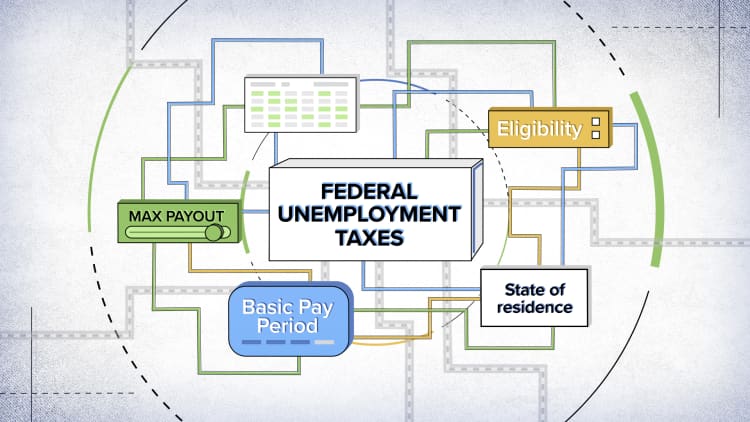Americans who are out of work may be getting a sizable unemployment check as a result of recent coronavirus relief measures.
That extra pay will likely be reduced after July.
The $2.2 trillion coronavirus relief law, known as the CARES Act, enhanced jobless pay for out-of-work Americans.
Nearly 39 million Americans have filed for unemployment benefits since mid-March, according to the U.S. Labor Department. Some economists believe unemployment levels may soon rival those during the Great Depression.
The CARES Act, among other things, raised the amount of weekly benefits. But that extra cash, currently $600 a week, will end after July 31. Some states are ending it a week earlier, on July 25.
Republican lawmakers appear poised to let the policy lapse rather than extend it.
More from Personal Finance:
Big changes could be coming for student loan borrowers
Self-employed workers face uphill battle on PPP loan forgiveness
How long it could take before you get a second stimulus check
Many have lambasted the payout as a disincentive to return to work as states begin reopening their economies. A number of lower-wage workers could make more money while collecting unemployment benefits than from their typical paycheck as a result of the $600 payments.
Senate Majority Leader Mitch McConnell said Wednesday that the next round of financial relief for Americans would not extend the benefit.
Democrats want to extend the policy. The HEROES Act, which the Democrat-led House of Representatives passed last Friday, would extend the payments until early next year, calling them a "vital safety net" for the record number of unemployed Americans.
The federal government is funding the bigger payout to jobless Americans who qualify for unemployment benefits. That's in addition to whatever weekly benefits are paid by the states, which vary widely in generosity.
The weekly increase is substantial relative to payouts prior to the CARES Act, according to labor economists.
The average worker received about $378 a week in state unemployment benefits prior to the relief law, according to the Labor Department. The law boosts that weekly total to $978 a week — a 159% increase.
Payouts have never been as generous in the entire history of the unemployment insurance program, which dates to the 1930s, said Gary Burtless, an economist and senior fellow at the Brookings Institution.
Barring an extension, jobless pay will be reduced after July to the weekly benefit paid by the state where the recipient had been employed. State benefits replaced approximately 40% of wages for the average worker prior to the coronavirus pandemic.
Workers furloughed or laid off after July wouldn't receive the $600-a-week increase, experts said.
"Then, they'll have to make do with whatever the regular unemployment-insurance benefit is in their state," Burtless said.

Most states pay up to 26 weeks of unemployment benefits. However, the CARES Act boosted the duration of state unemployment benefits by 13 weeks through the end of the year.
Someone who loses a job after July would still be eligible for the increased duration of state benefits, Burtless said.
Lawmakers would likely extend state benefits past the 39-week maximum if high unemployment levels persist, he said. But it seems unlikely Congress will extend the $600 payments past July, Burtless said.
"Congress, I suspect, will prolong the 39 weeks after Jan. 1," he said. "But the $600 add-on, I'm more doubtful they'll extend that."
Some lawmakers have voiced concern that the $600 payments allow some workers to collect more than 100% of their prior paychecks while unemployed.
This situation applies primarily to low- to moderate-wage workers, and depends on the generosity of a particular state.


